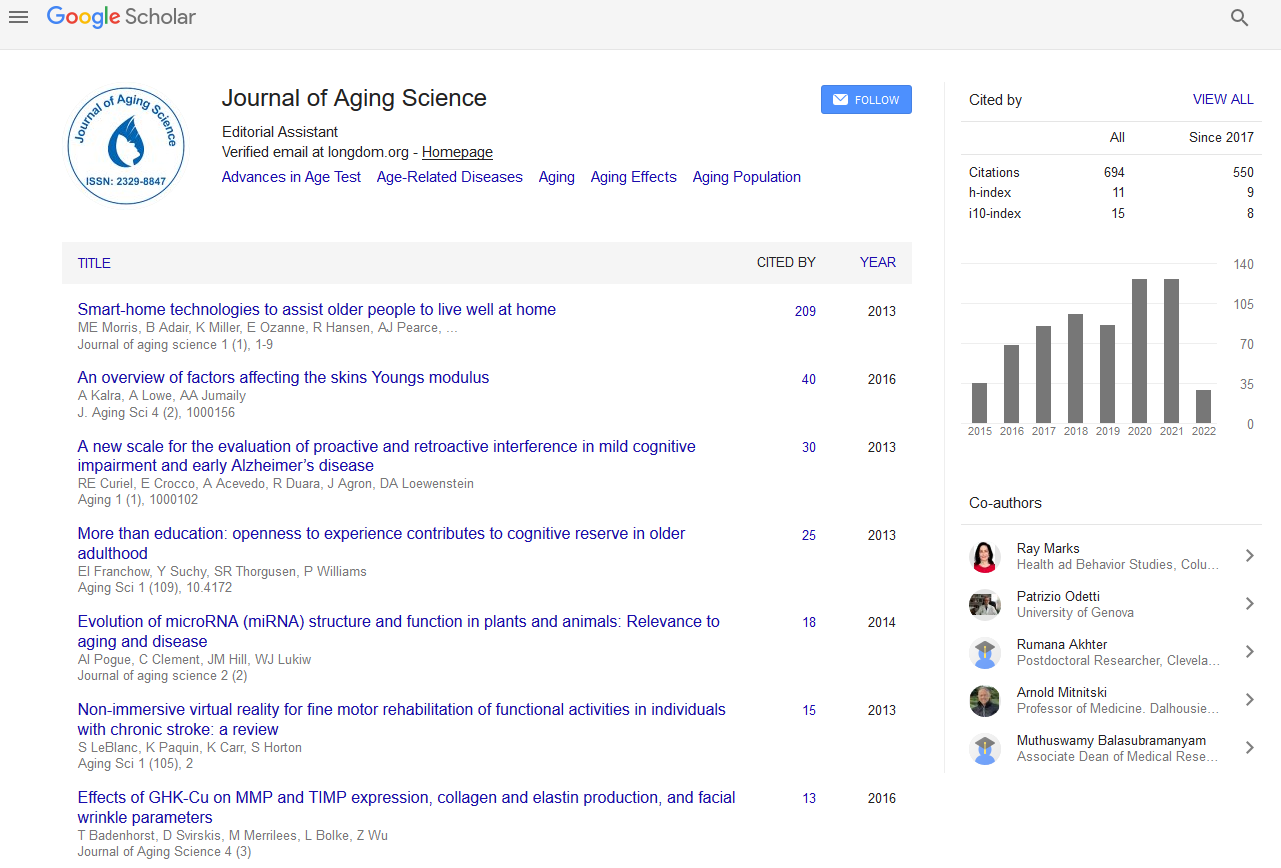PMC/PubMed Indexed Articles
Indexed In
- Open J Gate
- Academic Keys
- JournalTOCs
- ResearchBible
- RefSeek
- Hamdard University
- EBSCO A-Z
- OCLC- WorldCat
- Publons
- Geneva Foundation for Medical Education and Research
- Euro Pub
- Google Scholar
Useful Links
Share This Page
Journal Flyer

Open Access Journals
- Agri and Aquaculture
- Biochemistry
- Bioinformatics & Systems Biology
- Business & Management
- Chemistry
- Clinical Sciences
- Engineering
- Food & Nutrition
- General Science
- Genetics & Molecular Biology
- Immunology & Microbiology
- Medical Sciences
- Neuroscience & Psychology
- Nursing & Health Care
- Pharmaceutical Sciences
Abstract
Protective Effects of Cerebrospinal Fluid With the Intake of Xixin Decoction on Hippocampal Neuron Apoptosis Induced by Aβ1-42
Diwu Yong-chang, Meng Ting-ting, Wang Fang, Gu Zan, Zeng Jian, Yang Ke, Cui Na and Gu Jie
Objective: To study the protective effects of cerebrospinal fluid with the intake of Xixin Decoction (CSF) on Aß1-42-induced apoptosis in rat hippocampal neurons.
Methods: Hippocampal neurons were extracted from Wistar newborn rats and cultured in vitro. Cultured neurons were divided into the following groups: the normal control group, the Aß model group, the low concentration treatment group, the medium concentration treatment group, and the high concentration treatment group. We analyzed cell viability using an MTT assay. Cell apoptosis was observed using transmission electron microscopy, and the rate of cell apoptosis was measured with flow cytometry using Annexin V/PI double staining kit. The gene expression and protein expression levels of Caspase-9, Bcl-2, and Bax in cells were measured using Real-time PCR, Western blot, and immunofluorescence techniques.
Results: cerebrospinal fluid with the intake of Xixin Decoction was found to improve the survival rate of cells, improve cell morphology during apoptosis, and reduce the number of apoptotic cells. Compared with the control group, the expression levels of Caspse-9 and Bax were increased in the model group, while the Bcl-2 expression level was decreased. In addition, the expression levels of Caspase-9 and Bax were found to be reduced in each treatment group, compared with the model group. It was also quite evident that Bcl-2 expression levels were increased (P<0.05 or P<0.01).
Conclusion: cerebrospinal fluid with the intake of Xixin Decoction exhibits a significant protective effect on cells against Aß1-42-induced apoptosis. Importantly, we demonstrate a dose-effect relationship, with the effects of cerebrospinal fluid with the intake of Xixin Decoction at a density of 20% showing the most significant results.


